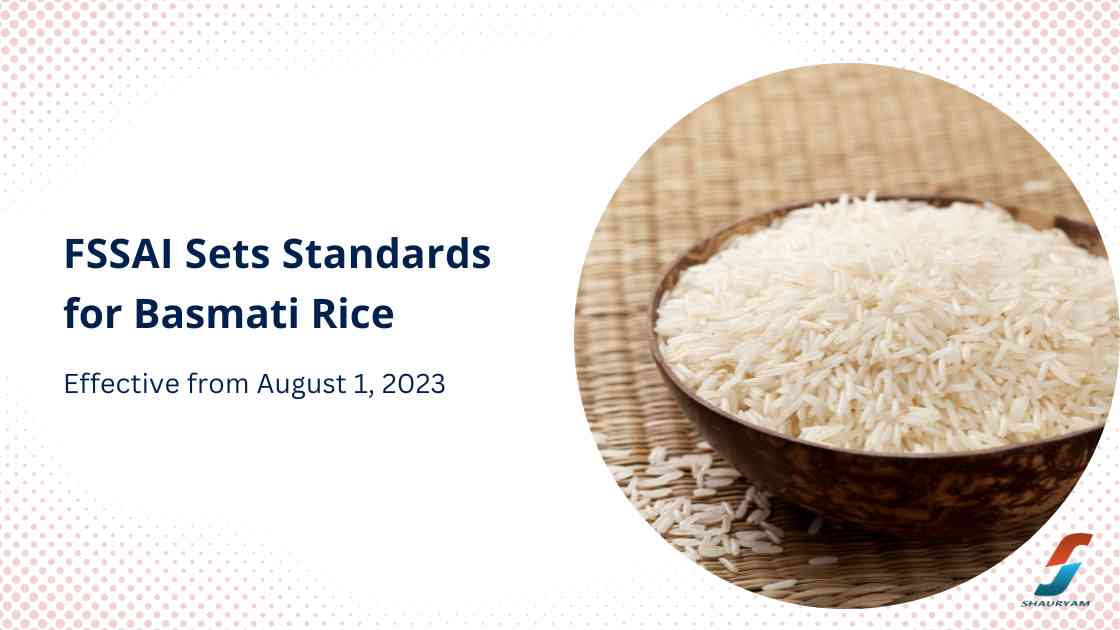For the first time in India, the Food Safety and Standards Authority of India (FSSAI) has specified the identity standards for Basmati Rice. These standards will be enforced with effect from 01 August 2023.
Basmati being a premium quality rice is prone to various types of adulteration for economic gains. Blending Basmati with non-basmati varieties is a common practice. Therefore, the FSSAI has announced Regulatory standards for Basmati rice.
This blog covers new FSSAI standards for Basmati rice, variants included in the standards and the benefits of regulating the Basmati rice.
What are the FSSAI Standards for Basmati Rice?
- Basmati rice shall possess the natural fragrance characteristic of basmati rice.
- It should be free from artificial colouring, polishing agents and artificial fragrances.
- Further, these standards also specify the average size of Basmati grains and their elongation ratio after cooking
- Maximum limits of moisture
- Amylose content
- Uric acid and,
- Defective/damaged grains and incidental presence of other non-basmati rice etc.
What are the Basmati variants covered under FSSAI Standards?
According to FSSAI, these regulatory standards for basmati rice shall also be applicable to
- Brown Basmati rice,
- Milled Basmati rice,
- Parboiled brown Basmati rice and,
- Milled parboiled Basmati rice.
What are the benefits of regulating Basmati Rice?
Basmati is widely consumed both domestically and globally and India accounts for 2/3rd of its global supply.
Basmati is widely consumed both domestically and globally and India accounts for 2/3rd of its global supply.
New standards will help to:
- Ensure supply of standardized genuine Basmati rice in domestic and export market.
- Establish fair practices in the trade of Basmati rice.
- Protect consumer interest both domestically and globally.
Conclusion
FSSAI has took a huge step in the interest of producers, consumers and exporters of Basmati rice.
This will not only establish the quality of Indian Basmati rice but will also protect India’s global stature as number one basmati rice exporter.




